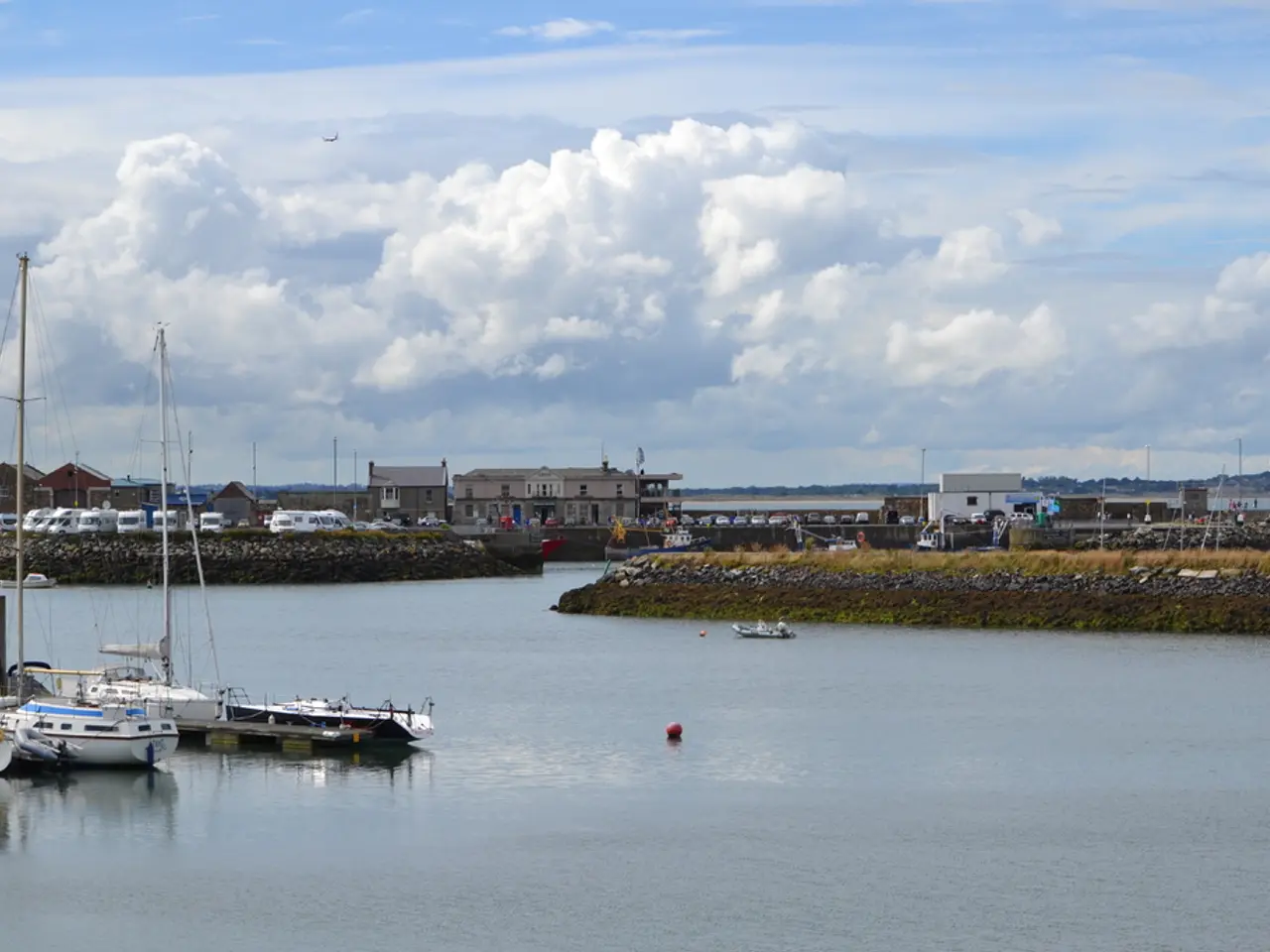Adapting to sustainability: Pursuing climate change mitigation while residing on cruise ships
The upcoming United Nations Climate Change Conference (COP30) in Belém, Brazil, has faced a logistical challenge due to an excess of attendees. A novel solution has been proposed: using cruise ships as temporary accommodations for participants. However, this decision has raised environmental and health concerns.
## Environmental Impacts
Cruise ships are significant emitters of greenhouse gases, such as carbon dioxide, nitrogen oxides, and sulfur oxides, contributing to their carbon footprint. This could potentially undermine the conference's goals of reducing emissions and mitigating climate change.
Moreover, cruise ships generate substantial amounts of waste, including untreated sewage and other pollutants, which can harm marine ecosystems if not properly managed. The high energy consumption on cruise trips often results in waste being dumped into the sea.
## Health Impacts
Living on cruise ships can expose participants to poor air quality due to the proximity to the ship's engines and potential exhaust emissions, which can exacerbate respiratory issues. The close living quarters on cruise ships can facilitate the spread of illnesses, particularly in settings where thousands of people are congregating.
The unconventional living conditions and the lack of personal space could potentially increase stress and fatigue among participants, affecting their ability to engage fully in the conference.
## Mitigation Strategies
To mitigate these impacts, implementing strict environmental and health protocols, such as advanced waste management and pollution control technologies, could help. Encouraging cruise ships to use cleaner fuels or more efficient engines could reduce emissions and pollution.
Ensuring robust health and safety standards on board, including adequate ventilation and hygiene measures, is crucial to minimizing health risks.
The decision to use cruise ships as accommodations for COP30 participants presents a unique set of challenges that need careful management to minimize environmental and health impacts. It remains to be seen how these concerns will be addressed as the conference approaches.
- The use of cruise ships for temporary accommodations at the COP30 Climate Change Conference could contradict the conference's goal of reducing emissions, as cruise ships are significant emitters of greenhouse gases like carbon dioxide, nitrogen oxides, and sulfur oxides.
- lifestyle choices like travel on cruise ships can lead to health concerns, especially in crowded conditions, as living on cruise ships can expose individuals to poor air quality and potentially exacerbate respiratory issues.
- To address the environmental and health impacts of using cruise ships for temporary accommodations, strategies such as implementing advanced waste management and pollution control technologies, encouraging the use of cleaner fuels, and enforcing robust health and safety standards on board could be implemented.




